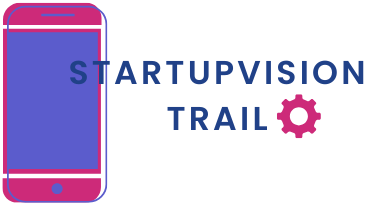Table of Contents
ToggleIn the fast-paced world of business, juggling projects can feel like a circus act gone wrong. Enter enterprise project management software, the unsung hero that helps teams tame the chaos and keep those metaphorical clowns in check. This powerful tool doesn’t just organize tasks; it transforms the way teams collaborate, ensuring everyone’s on the same page—preferably a page that doesn’t involve juggling flaming torches.
Imagine a world where deadlines aren’t the stuff of nightmares, but rather a well-choreographed dance. With the right software, teams can streamline workflows, enhance communication, and boost productivity. Whether it’s tracking progress or allocating resources, enterprise project management software is like having a personal assistant who never sleeps—because let’s face it, sleep is overrated when deadlines loom.
Overview of Enterprise Project Management Software
Enterprise project management software (EPM) provides teams with essential tools for planning, executing, and monitoring projects. Designed for organizations managing complex projects, it supports multiple teams working simultaneously. EPM integrates various functions such as budgeting, scheduling, and resource allocation into a single platform.
Coordination between team members improves significantly with EPM. Tasks become more organized, and communication channels remain open, reducing misunderstandings. Transparency within workflows fosters accountability, ensuring everyone knows their responsibilities. Collaboration features allow real-time updates, enabling quicker decision-making.
Data-driven insights play a critical role in EPM, aiding teams in evaluating project performance. Many platforms feature robust reporting tools that track progress and resource usage. Users can leverage this data to identify risks early, facilitating proactive adjustments to project timelines.
Adopting EPM streamlines overall operations, enabling organizations to meet tight deadlines more effectively. Enhancing productivity becomes possible through automation of routine tasks, allowing teams to focus on strategic initiatives. This software not only adapts to changing project requirements but also grows with the organization.
Complexity doesn’t deter users, as many platforms offer customizable interfaces that cater to diverse business needs. Learning curves are manageable since most EPM systems include training resources. Diverse functionalities accommodate the specific demands of different industries, whether in construction, IT, or marketing.
Overall, enterprise project management software represents a vital asset for organizations aiming to improve project efficiency and team collaboration while navigating the complexities of modern business environments.
Key Features to Consider
Selecting the right enterprise project management software involves evaluating several key features that enhance project outcomes. Understanding these features ensures teams make informed decisions that meet their specific needs.
Task Management
Task management tools enable teams to create, assign, and prioritize tasks effectively. One feature includes deadline tracking, allowing members to monitor progress and stay aligned with project timelines. Visual task boards improve visibility, providing a clear overview of responsibilities. Another essential aspect is the ability to set recurring tasks, ensuring that routine activities remain on track. Teams benefit from functionality that supports subtasks, helping break down complex projects into manageable steps. Effective task management fosters accountability and drives productivity among team members.
Resource Allocation
Resource allocation features play a critical role in optimizing team capabilities. Managers can view resource availability in real time, which aids in making informed decisions about assignments. One important tool includes budget tracking that helps teams manage financial resources efficiently. Furthermore, workload distribution ensures no team member is overburdened, highlighting potential bottlenecks. The software’s forecasting tools assist in predicting future resource needs based on current project requirements. Optimizing resource allocation leads to enhanced operational efficiency and maximizes project outcomes.
Reporting and Analytics
Reporting and analytics are vital for measuring project success. Comprehensive dashboards provide real-time insights into project progress and team performance. Teams benefit from customizable reports that can address specific metrics and KPIs, enabling detailed analysis of various aspects of projects. Predictive analytics identify potential risks, allowing teams to make proactive adjustments before issues arise. Regular performance tracking ensures that organizations remain on the right path toward their goals. Leveraging data-driven insights enhances decision-making and drives overall project effectiveness.
Popular Enterprise Project Management Software Options
Various enterprise project management software options exist, each offering unique features tailored to enhance project efficiency and team collaboration.
Software A
Microsoft Project stands out as a widely-used EPM tool. It provides robust task management features that allow teams to create and assign tasks seamlessly. Resource allocation capabilities ensure optimal use of team members, enhancing productivity. Detailed reporting tools enable users to track project performance effectively. Integration with other Microsoft Office applications simplifies workflows, making it an ideal choice for organizations already invested in the Microsoft ecosystem.
Software B
Asana offers flexibility designed to accommodate diverse project needs. Its user-friendly interface enables teams to visualize projects through customizable dashboards. Task prioritization tools help ensure that critical tasks receive immediate attention. Collaboration is facilitated through comment sections on tasks, allowing for real-time communication. Reporting features provide insights into project timelines and resource allocation, assisting teams in making informed decisions.
Software C
Monday.com is known for its versatility across different industries. The platform allows teams to automate repetitive tasks, significantly saving time and effort. Customizable workflows enable organizations to tailor the software to their specific needs, improving efficiency. Visual project tracking features provide clarity on deadlines and task statuses. Integration with other popular applications further enhances its functionality, making it suitable for any team aiming to streamline operations.
Benefits of Using Enterprise Project Management Software
Enterprise project management software (EPM) enhances team organization, fostering effective collaboration and communication. Teams experience reduced stress as deadlines transform into manageable tasks through streamlined workflows. Project planning, execution, and monitoring occur seamlessly with the integration of budgeting, scheduling, and resource allocation on a single platform.
Enhanced transparency promotes accountability among team members, allowing everyone to stay informed. Collaboration features provide real-time updates, enabling quicker decision-making and minimizing delays. EPM tools deliver data-driven insights that facilitate performance evaluation through robust reporting options, tracking progress and resource utilization effectively.
Early identification of risks occurs with comprehensive data analysis, allowing teams to adjust project timelines proactively. Streamlined operations empower organizations to meet tight deadlines efficiently while enhancing productivity through automation of repetitive tasks. Flexibility in adapting to project requirements makes EPM a versatile solution that grows alongside the organization.
Customizable interfaces address diverse business needs, enhancing user experience. A manageable learning curve and ample training resources support specific industry demands, reinforcing the software’s value in improving project efficiency and team collaboration.
Task management features allow for effective creation, assignment, and prioritization of tasks. Visual task boards and deadline tracking enhance visibility and accountability within teams. Real-time insights into resource availability optimize workload distribution, increasing overall productivity while budget tracking aids in financial governance.
Robust reporting and analytics tools provide customizable reports critical for measuring project success. Focusing on these elements enables teams to make informed decisions, ultimately promoting overall project effectiveness. Organizations recognize the value of popular EPM software options like Microsoft Project, Asana, and Monday.com for their unique capabilities in enhancing project efficiency and team collaboration.
Challenges and Considerations
Implementing enterprise project management software presents several challenges. Organizations face resistance to change from team members accustomed to traditional workflows. Ensuring user adoption becomes critical, as effective training and ongoing support are necessary for success. Data migration from existing systems often leads to complications, resulting in potential disruptions during the transition.
Integration with other tools commonly utilized in the business can also pose challenges. Not all EPM software integrates seamlessly with every application, leading to potential data silos. Addressing compatibility is crucial to maintain streamlined operations and avoid inefficiencies. Additionally, the cost associated with comprehensive software solutions may exceed initial budgets, creating financial strain on organizations, especially those with limited resources.
Scalability is another key consideration. As businesses grow, their project management needs often change. Organizations must select EPM software that can accommodate evolving requirements without necessitating frequent replacements. Customization options may be limited in some software, restricting flexibility and adaptability to specific industry needs.
User experience plays a vital role in successful implementation. Complex interfaces may intimidate users, leading to decreased productivity. Opting for software with intuitive designs can foster a smoother transition. Lastly, prioritizing data security in selecting EPM solutions cannot be overlooked. Safeguarding sensitive project information requires robust security measures to protect against potential breaches.
Evaluating these challenges thoroughly supports informed decision-making, paving the way for effective adoption of enterprise project management software. Organizations that navigate these considerations effectively create environments conducive to enhanced collaboration, improved project outcomes, and overall business success.
Enterprise project management software serves as a game changer for organizations navigating the complexities of modern project execution. By enhancing collaboration and streamlining workflows, it empowers teams to tackle challenges head-on while maintaining productivity. With features tailored to support diverse needs, EPM solutions not only improve project efficiency but also foster a culture of accountability and transparency.
As businesses continue to evolve, adopting the right EPM software can significantly impact their ability to meet deadlines and drive success. Organizations that invest in these tools are better positioned to adapt to changing demands and optimize their project management processes, ultimately leading to sustained growth and improved outcomes.





